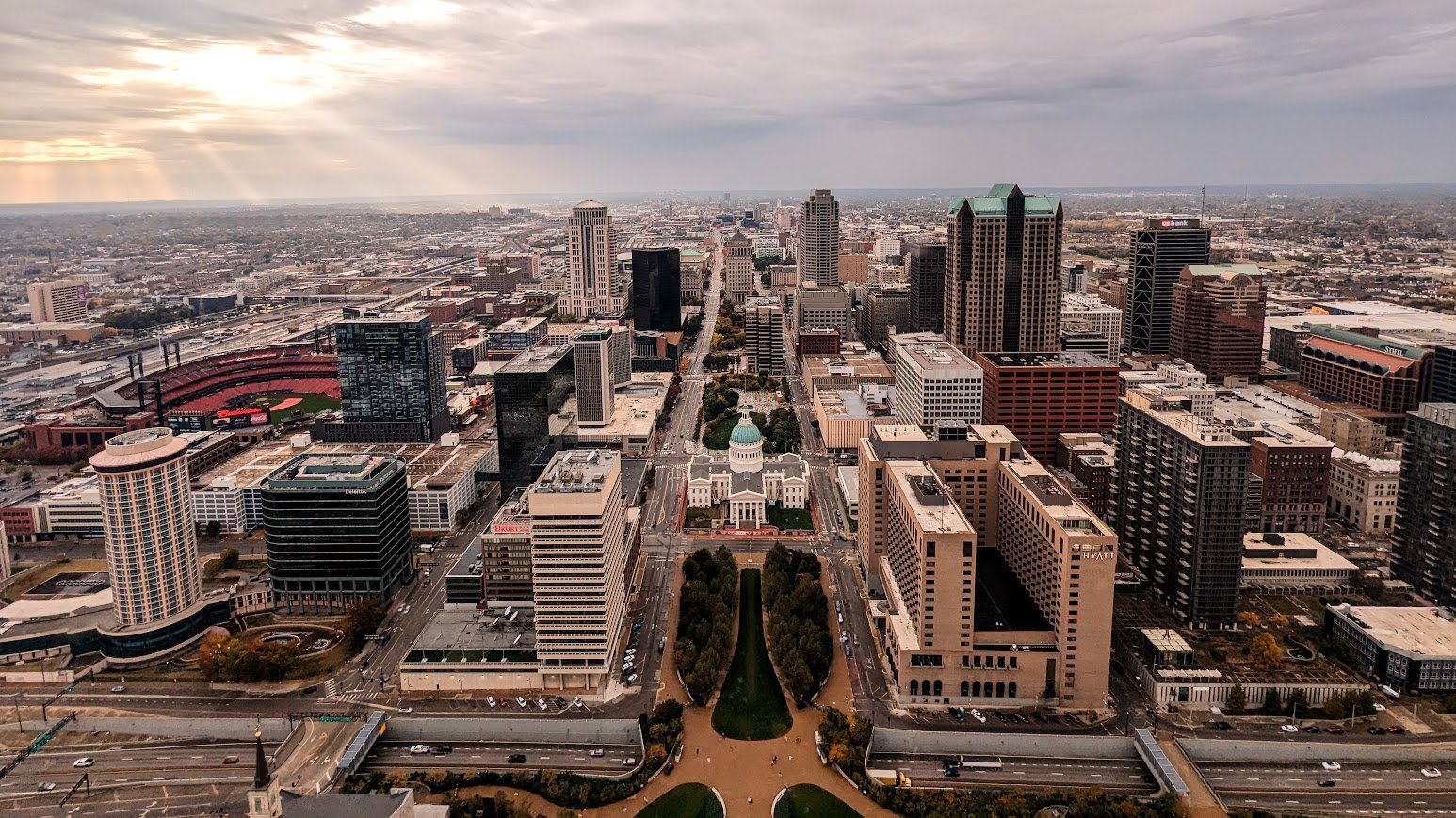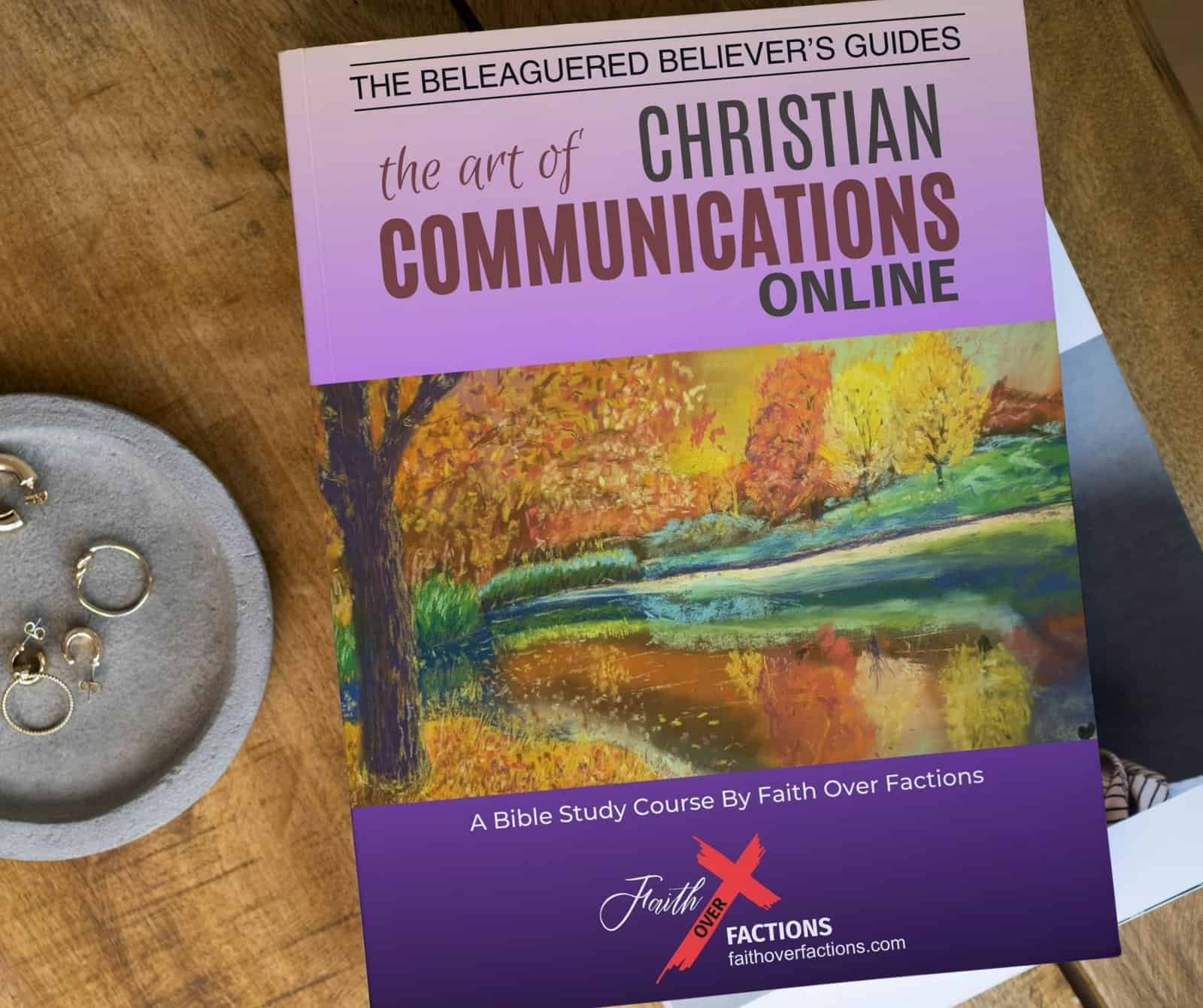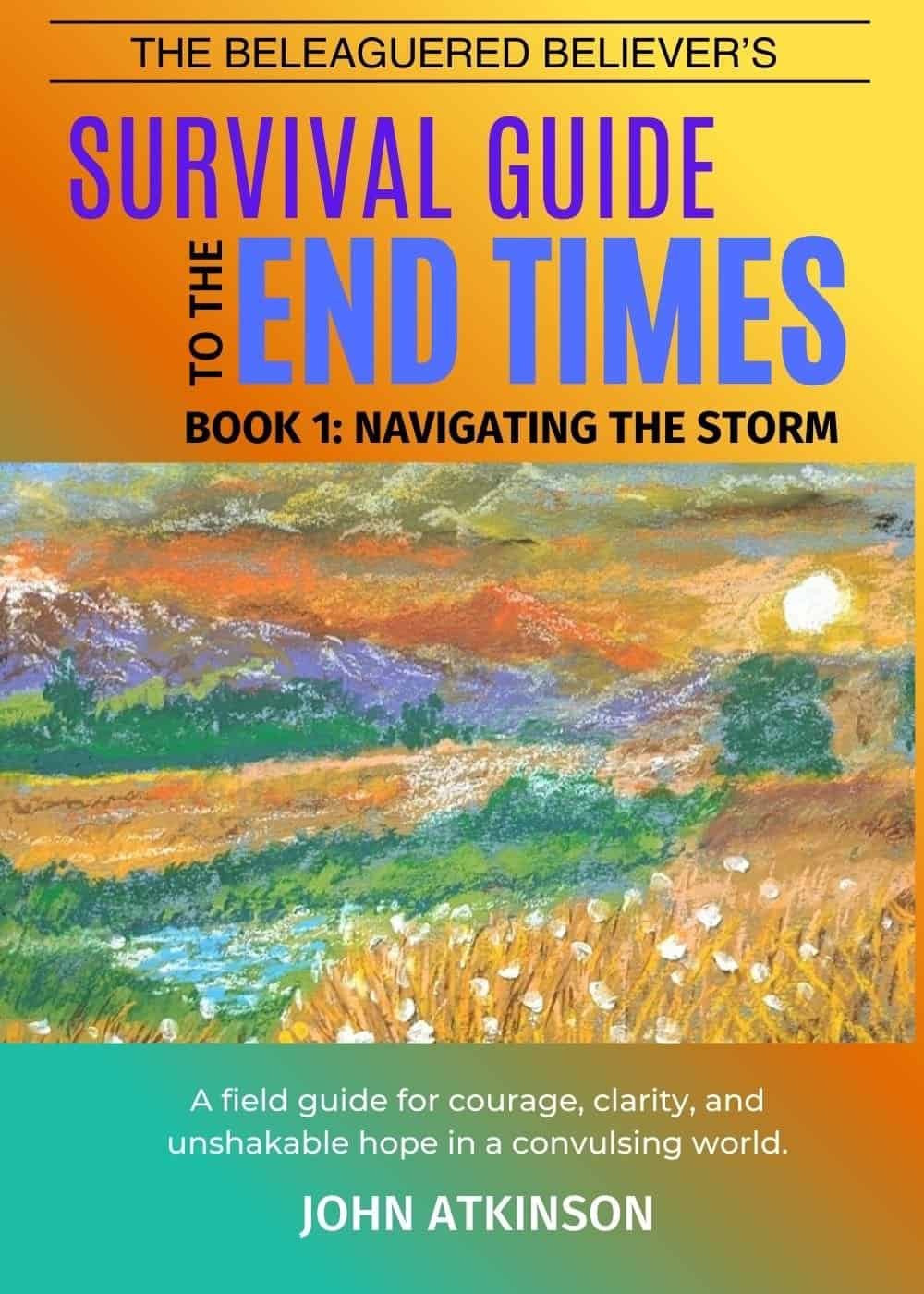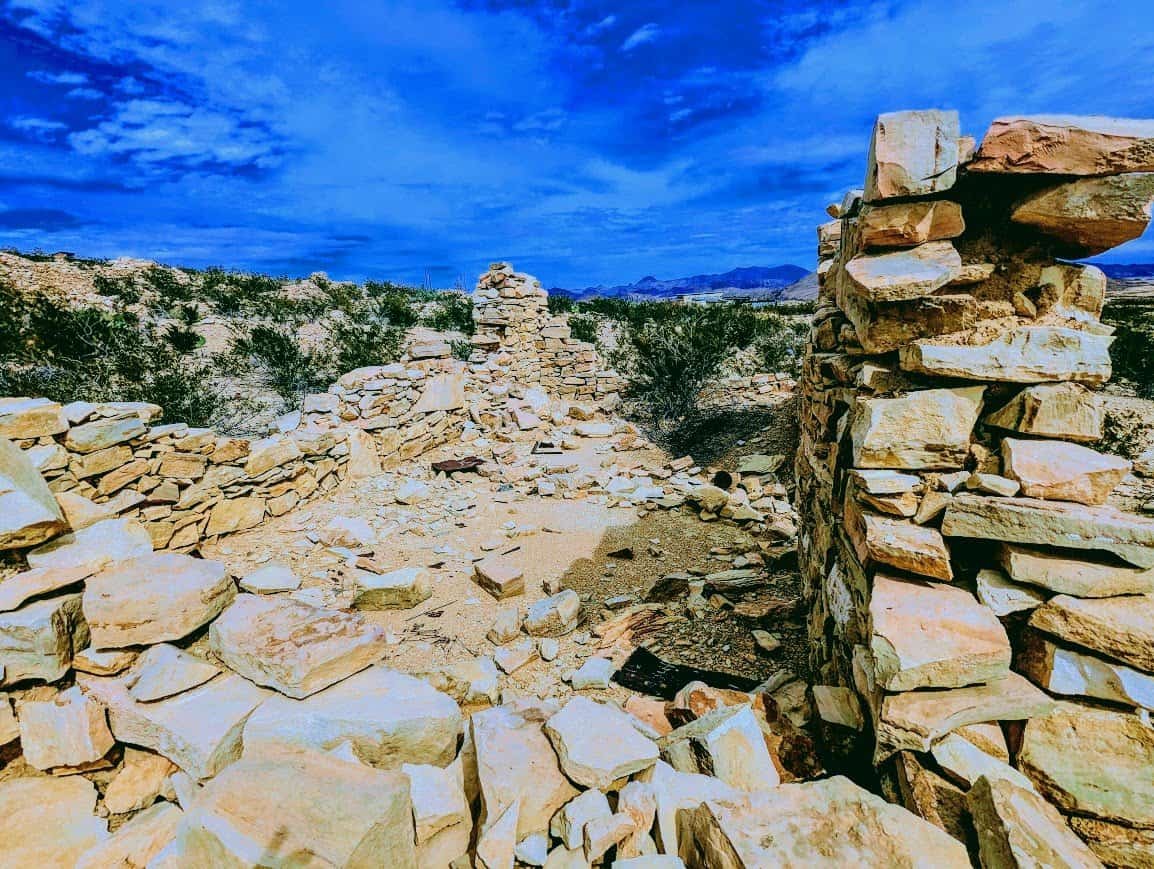
What If the Chains You Need to Break Aren’t Visible?
It happens when a woman clutches her purse tighter as you pass.
It happens when a store clerk trails you down the aisle, pretending to tidy shelves.
It happens when résumés with certain names never get a call back.
It happens when voices go unheard in meetings, until someone else repeats the same idea.
These moments don’t make headlines. They don’t come with shackles or locked doors. But they still bind. They wear down dignity. They remind us that injustice often works in silence, hidden beneath the everyday.
Not the kind anyone else could see. Or an experience many can even relate to. Invisible chains don’t rattle. They tighten in silence — suspicion, judgment, the quiet theft of dignity.
A Christian response to injustice requires undestanding that we live in a time when the word freedom gets used to justify almost anything. From personal choices to political slogans, it’s been stretched thin. But true freedom isn’t about doing whatever we please. It’s about living unbound by lies, fear, and injustice. That’s why we need clear eyes and tender hearts. Oppression doesn’t always wear shackles. It hides in systems we accept as normal, in spiritual manipulation, in cultural habits we rarely question. God sees these chains — and He calls us to see them too. We are called to a Christian response to injustice that hides in plain sight.
Anchor in the Word
Key Verse
What sorrow awaits the unjust judges and those who issue unfair laws. They deprive the poor of justice and deny the rights of the needy among my people. They prey on widows and take advantage of orphans.
Isaiah 10:1-2, NLTKey Scripture Context
Isaiah spoke these words to leaders in ancient Judah who twisted power into tools of oppression. Courts were corrupted, and laws served the wealthy at the expense of the weak. This wasn’t just personal greed, it was systemic injustice. Isaiah named it out loud because God’s heart breaks when the vulnerable are crushed. The prophet’s words echo through time, reminding us that oppression often hides behind official policies and respected titles. And God does not stay silent.
What We’re Facing
When Injustice Feels Normal
Oppression today doesn’t always announce itself. It often blends into the background of daily life, disguised as business as usual. It creeps into economic systems, cultural pressures, even church doctrines that elevate control over compassion.
- Systemic Injustice shows up in cycles of poverty, unequal schools, wage theft, or policies that punish the poor while protecting the rich. Imagine a family choosing between rent and medicine, that’s not freedom, that’s bondage.
- Spiritual Bondage emerges when faith is twisted into shame and fear. It’s the heavy preaching that heaps guilt but withholds grace, the manipulation that replaces Christ with rule-keeping. Instead of setting people free, religion can become a cage.
- Cultural Manipulation whispers that comfort matters more than conscience. It tells us to “go along” rather than question. It mocks sacrifice and applauds selfishness. These messages feel harmless, but they train us to ignore injustice. They shape us into bystanders when God calls us to be participants in His justice.
These chains are invisible. But they’re real. And they’re heavy. God sees them — and He invites us to see them too.
Then and Now — Drawing Parallels
Isaiah’s world was filled with leaders who bent justice for profit. Judges ruled with bias, rulers enriched themselves, and the poor bore the cost. In Jesus’ time, Pharisees and scribes added layers of rules while ignoring the heart of God’s law — mercy, justice, love (Matthew 23:23).
Today, the names have changed, but the lies remain. Redlining. Mass incarceration. Wage exploitation. Propaganda. Hollow spiritual performances. They are old chains in new forms. The prophets called them out. Jesus confronted them face to face. And we are called to do the same. Because truth matters. Justice matters. Mercy matters. Always.
Theological Truth in Plain Language
God’s justice is never abstract. It is personal. It touches daily lives. Scripture doesn’t just ask us to feel sad about injustice. It asks us to act. As Dietrich Bonhoeffer said, “Silence in the face of evil is itself evil. Not to speak is to speak. Not to act is to act.”¹
Isaiah urged: “Learn to do good. Seek justice. Help the oppressed.” (Isaiah 1:17, NLT)
Jesus promised: “You will know the truth, and the truth will set you free.” (John 8:32, NLT)
Proverbs reminds us: “Speak up for the poor and helpless, and see that they get justice.” (Proverbs 31:9, NLT)
Charles Spurgeon once wrote, “Anxiety does not empty tomorrow of its sorrows, but only empties today of its strength.”² Injustice feeds anxiety, but trust in God fuels courage. A.W. Tozer echoed this hope: “A scared world needs a fearless church.”³
The gospel is not only forgiveness of sins. It is liberation from every force that dehumanizes. Jesus doesn’t just pardon. He frees.
Practical Moves of Faith
Prayer Prompt
“Lord, open my eyes to the chains I’ve ignored — in my own heart, in my community, and in the world around me. Give me the courage to name them, the humility to learn, and the strength to act with compassion. Break what binds, heal what’s wounded, and make me a bearer of Your freedom. Amen.”
1. Educate Yourself
Freedom begins with truth. Take time to learn from voices outside your own. Read testimonies from immigrants, the incarcerated, or those living in poverty. Sit with their stories. Let them unsettle your assumptions. Go beyond headlines. Ask who is left out of opportunity in your town. What neighborhoods lack clean parks, good schools, or medical care? Don’t let learning be passive. Make it prayerful. Ask God to show you what He sees.
2. Examine Your Own Biases
This step requires courage. Pray: “Lord, where have I chosen comfort over compassion? Where have I accepted what is normal without asking if it is right?” Be willing to be wrong. Bias is not proof you’re bad. It is proof you’re human. The Spirit can transform our blind spots into places of compassion. Listen deeply to those who’ve been marginalized. Believe their stories. Let empathy break hard ground inside you.
3. Take a Stand
Courage rarely looks grand. Sometimes it’s one sentence in a quiet room. Sometimes it’s refusing to laugh at a cruel joke. Sometimes it’s showing up when silence would be safer. You don’t have to start a movement to join God’s mission. You can vote for justice-minded leaders. You can support organizations that serve the needy without strings attached. You can share your resources. And if you hold privilege, don’t hoard it. Use it as a platform for the voiceless.
4. Pray for Discernment and Courage
Not every fight is yours, but some are. Ask God to show you where to step forward. Pray with open hands: “Give me eyes to see what I’ve missed, a heart that breaks for what breaks Yours, and courage to act.” Wait for His whisper. Don’t rush. God doesn’t ask for perfection. He asks for willingness. One act of truth, one word of solidarity, one small stand can become part of someone else’s liberation story.
More Light for the Journey
- Micah 6:8 (NLT): “O people, the Lord has told you what is good, and this is what he requires of you: to do what is right, to love mercy, and to walk humbly with your God.”
→ Justice and mercy belong together in God’s heart. - Luke 4:18 (NLT): “The Spirit of the Lord is upon me... to set the oppressed free.”
→ Jesus defined His mission as liberation. - James 1:27 (NLT): “Pure and genuine religion... means caring for orphans and widows in their distress...”
→ True faith is active compassion. - Romans 12:2 (NLT): “Don’t copy the behavior and customs of this world, but let God transform you...”
→ Real freedom begins with a renewed mind.
Let’s Walk This Out Together
You don’t have to fix everything to begin something. If this reflection stirred discomfort, clarity, or even sorrow, let that be sacred. It means your spirit is awake. Oppression thrives in shadows, but light begins with the smallest spark of awareness.
You are not alone in this journey. Many of us grew up in systems that taught us to look away, or to believe injustice was someone else’s problem. But God is calling us now to live differently. To walk in truth. To stand with the vulnerable. To challenge the lies we’ve inherited without even realizing it. This is not a call to shame. It is a call to freedom.
Faith is not passive. It is not just thoughts and prayers. It is presence and participation. That doesn’t mean shouting on corners or burning out in anger. It means quiet resistance to evil, steady compassion in action, and honest reckoning with our own part in the world’s brokenness.
You don’t need all the answers to take the next faithful step. But don’t stay still. Ask. Learn. Speak. Stand. Keep showing up. We are called to be salt and light — preserving what is good, illuminating what has been hidden, and creating space for God’s justice to flow like a river.
Call to Action
If this reflection describing a Christian response to injustice gave you pause, don’t let that moment pass. Pray. Write. Reach out. Speak up. And share your reflections, anonymously or publicly, on social media using #FaithOverFactions. Let’s listen to one another. Let’s challenge one another. Let’s walk this out together.
Journaling Prompt: What Chains Do I See?
- What systems or beliefs have I accepted that might harm others? Slow down and trace your assumptions. Were they inherited or examined?
- Where do I feel the Spirit nudging me to speak up or change? Pay attention to the stirring. Is there a person or cause you’ve avoided?
- What scares me most about challenging the status quo? Be honest. Now imagine facing that fear with God beside you.
- Who around me is hurting? What small act of presence, support, or advocacy can I offer this week?
- What would a more just world look like? Picture it. Streets filled with peace. Churches filled with mercy. What role might God invite me to play?
Footnotes
- Dietrich Bonhoeffer, Letters and Papers from Prison (New York: Macmillan, 1971).
- Charles H. Spurgeon, Faith’s Checkbook (London: Passmore & Alabaster, 1888).
- A.W. Tozer, The Set of the Sail (Harrisburg: Christian Publications, 1986).







